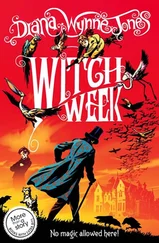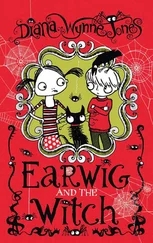“Yes,” said Lenina. “At Medmere.”
“I’d better send some hearthmen over to investigate,” said Ganner. “Anyway, come down and come in. Are these your children?”
“My three sons and my daughter,” said Lenina.
“What a lot of them!” said Ganner, looking a little daunted. But he smiled gallantly at all four. “I’ll do my best to look after you all,” he said. Moril could not find it in his heart to dislike Ganner, much as he had intended to. It was so plain he meant well. If, to someone who had been used to Clennen, he seemed a very ordinary person, then that was hardly Ganner’s fault, Moril supposed.
“He doesn’t look much like a goose,” Brid whispered, in some disappointment. Kialan had to bite his lip. Moril looked at Ganner gallantly helping Lenina down from the cart and smiling at her in a way that showed he adored her. Apart from that smile, he really seemed perfectly normal and ungooselike.
“Oh dear, oh dear!” Ganner exclaimed, as they all got down. “Shoes! Boots! Can you only afford one pair of boots?”
Lenina glanced along their line of bare feet, interrupted by Kialan’s scuffed boots. “We don’t usually bother with them,” she explained. “But Collen has tender feet.”
“I must make sure you all have shoes this instant!” Ganner exclaimed distractedly.
“You know, I think he may be a goose after all,” Brid said, with considerable satisfaction.

BY THAT AFTERNOON Moril was wondering if it was only that morning they had left Clennen buried by the lake. It felt like last century. There had been so many changes. After a good breakfast, followed by the attentions of a tailor, a bootmaker and Ganner’s old nurse, followed in turn by an astonishingly good lunch, Moril scarcely knew himself. He looked in a mirror – it was a thing he seldom had the chance of doing, so he looked long and often – and he saw a smoothly combed red-haired boy in a suit of good blue cloth and a pair of soft rust-coloured boots. The boots, to tell the truth, pleased him enormously. But he did not look in the least like his idea of himself. Dagner and Kialan had become spruce, gentlemanly figures in the same kind of blue clothes, and Brid a young lady in bright cherry colour. They were all four behaving very soberly and politely, not because Ganner insisted on it – because he did not – but simply because Markind was the sort of place where you could behave in no other way.
The biggest change was to Lenina. She was splendidly dressed too, and she had done her hair the way ladies did. Her cheeks were pinker than usual, and she laughed and chattered and hurried about with Ganner on a hundred errands. Moril had not often seen her laugh, and he had certainly never seen her so talkative. She was like a different person. That troubled him. It troubled him far more than learning she was going to marry Ganner that same evening.
Moril quite liked Ganner. Ganner told Moril he could do just what he liked and go anywhere he wanted, and obviously meant it. He was a very good-natured man. Moril quite liked the other people in the house too. He liked Ganner’s old nurse specially. She fussed rather, and she said rather too often that she had always known Lenina Thornsdaughter would come back to them, but she called Moril “My duck” and said he was a “blessing”. And while she was dressing him, she told Moril a story about a lord of Markind who had been outlawed. Moril had not heard the story before, and he drank it up. But he felt strange. Everything felt strange.
Moril took Ganner at his word and explored the house. He found two gardens and the kitchens. He looked at the cellars and the small rooms under the roof, but in between each exploration he found himself drifting into the stableyard. The cart had been put away in a coach house there, just as it was, wine jar, cwidders and all, down to the string of onions under the driving seat. It was just the same, yet somehow it already looked smaller and dustier and a little faded. Moril spent a lot of time talking to Olob, who was standing dejectedly in a stall nearby and seemed glad of his company. Moril stole sugar for him from the kitchen, which was easy to do because everyone there was in a great bustle, preparing for the wedding feast. Olob ate it politely, but he looked sad, and he was sweating rather.
“Poor fellow,” Moril said sadly. “I’m hot too. It’s being in a house.”
As the afternoon drew on, Moril became hotter still. Being between walls so oppressed him that he wondered whether to go out and walk in the town. But Markind had not inspired him with any wish to see more of it. He wandered to the stableyard and then into one of the gardens. Brid was there. She was feeling much the same, for she had taken off her cherry-coloured boots and was sitting with her feet in one of the goldfish ponds.
They exchanged sad, polite smiles, and Moril went on into the second garden. Behind him he heard Ganner’s voice.
“My dear little girl! You’ll catch your death like that! Do please dry your feet and put your boots on. You’ll worry your mother.”
Moril felt sorry for Brid. Then he suddenly felt even more – desperately – sorry for himself. He needed to be somewhere else, out in the open. He looked round wildly, upwards, everywhere. And a sturdy creeper growing up the thick yellow wall of the house gave him an idea. He slung himself on to it and started to climb.
It was extremely easy, except for the last bit, which needed a long stride and a heave across some crumbly stonework. Then he was on the wide, leaded roofs. It was splendid. Moril looked round, into the town, out across the valley, and over to valleys beyond. He turned north and looked at the misty blue peaks there, where he had so longed to go, and Kialan – lucky Kialan! – was going soon. But that made him sad. So, presently, Moril began to patter about across the leads and among the chimneys. He skirted courtyards and looked down into the gardens. Then he ran along a narrow part to another wing and looked down into another court.
And there was Ganner, horrified and gesturing below. “Come down! Come down at once!”
Moril looked. There was a lead pipe and an easy flight of windows. Obediently he swung his legs over the edge of the roof.
Ganner stopped him with a hoarse shriek. “No! Stop! Do you want to break your neck? Wait!” He ran away and presently ran back with a crowd of men carrying a ladder. With them ran a group of horrified maids and the old nurse, wringing her hands.
“My duck! Oh, my duck!”
Moril sat sadly on the edge of the roof, swinging his legs and watching them all pothering with the ladder. He knew what was wrong with Ganner now. He was a fusspot.
The ladder finally thumped against the wall beside him. “You can come down now,” Ganner called. “Go very carefully.”
Конец ознакомительного фрагмента.
Текст предоставлен ООО «ЛитРес».
Прочитайте эту книгу целиком, купив полную легальную версию на ЛитРес.
Безопасно оплатить книгу можно банковской картой Visa, MasterCard, Maestro, со счета мобильного телефона, с платежного терминала, в салоне МТС или Связной, через PayPal, WebMoney, Яндекс.Деньги, QIWI Кошелек, бонусными картами или другим удобным Вам способом.













